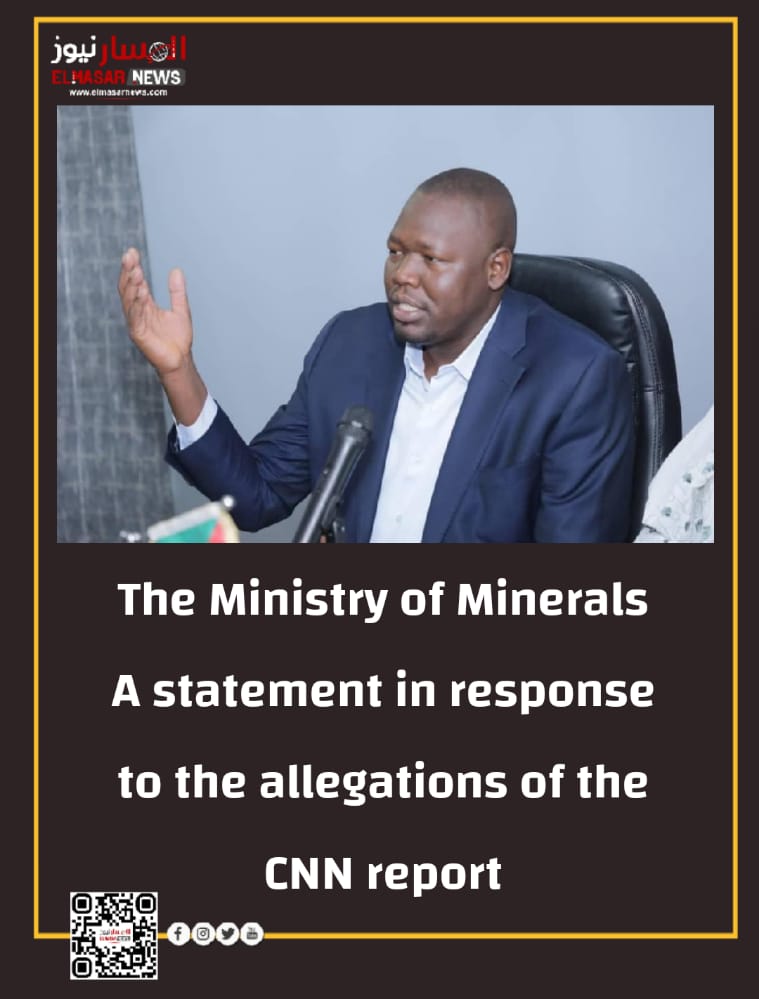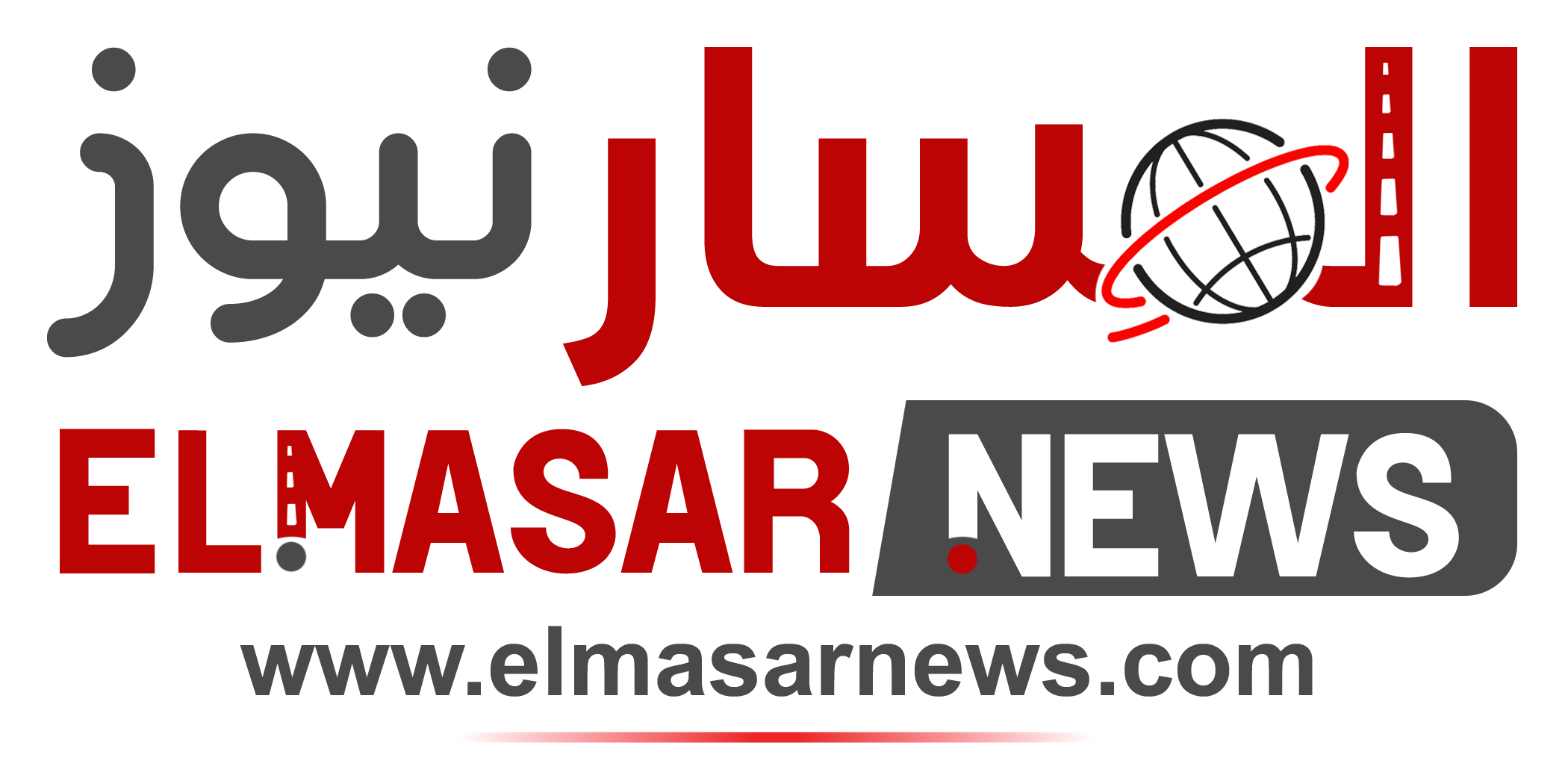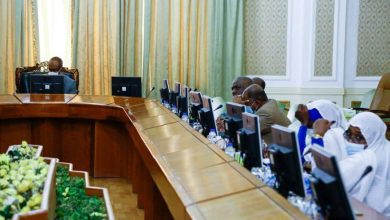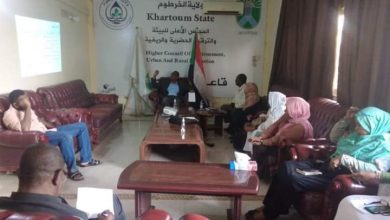The Ministry of Minerals A statement in response to the allegations of the CNN report

The Ministry of Minerals has been performing the tasks entrusted to it through its arms represented by Aryab Company, SudaMin Company, the Sudanese Company for Mineral Resources, and the General Authority for Geological Research to promote and develop the mining sector in Sudan. In this, many efforts have been made aimed at making the mining process successful according to its vision, objectives and plans. And for that, the Sudanese Mineral Resources Company Limited – one of the most important arms of the Ministry – plays its supervisory and oversight role in enforcing state policies by maximizing revenue, refurbishing the state treasury and contributing to the advancement of the economy.
Despite these mounting efforts, the governmental mining sector continued to be exposed to many deliberate risks and distortions by some to slow our resolve and limit the progress and development of this vital and important sector in Sudan. There is no evidence for this more than the allegations made by CNN during the past week, which it claimed (via an unknown source) that the gold smuggled from Sudan to Russia amounted to (223 tons) annually. Since this information is not true, it was necessary for us to provide public opinion and the relevant authorities with the abstract facts, which are that Sudan’s production of gold during the period from 2019 to June 2022 AD (three years and a half) did not exceed (156.0 tons) of raw gold, including the production of artisanal mining, according to our official statistics, as the production of organized mining in the corporate sector amounted to (58.49 tons) of raw gold.
If we take the assumption made by the CNN channel that the production of gold annually amounts to 223 tons, then this technically requires the consumption of the following necessary production inputs, and since the average concentration of gold is 3 grams per ton of processed ore, this needs the use of the following: (the table below shows the needs of production inputs to extract 223 tons of gold)
91,666,700.00 tons of ore with an average concentration of 3 g/ton for processing
45,833.35 tons of cyanide at a cost of $366,666,800.00
916,667,000.00 liters of fuel at a cost of $1,200,833,770.00
79 CIL-technology plants with a design capacity of 500 tons/day
2320 working days, 77 months, 6.5 years assuming that these factories run non-stop at full capacity
Based on the above table, if a simple effort is made in verification, the claim is false and the assumption is unrealistic. What we would like to confirm is that these numbers come from the official documents of the companies investing in the mining sector, the Ministry of Minerals and its four arms, the Bank of Sudan, authorities of customs and Specifications & Standards, and airports that record gold imports from Sudan next to air traffic and ports to and from the country of the claim.
It is worth mentioning here that not all gold produced is the share of the Sudanese government, but is subject to known partnership ratios in accordance with contracts, agreements and laws regulating the mining sector, and we must point out that the government’s share in the concession companies’ sector amounts to 7% of production, while the free shares of profits range from (20 to 30%), in addition to 2.5% of metal Zakat.
In the mine-tailings treatment companies’ sector, the government’s share is 33%, while business profit [tax] are 14.5%.
In the small-mining sector, the share of government and business profit [tax] is 13%.
In the traditional (artisanal) mining sector, the government obtains by default the value of a gram of gold from a sack of raw stone, estimated at 400 [Sudanese] pounds instead of 2,900 pounds, which is the value of 10% of the prevailing price.
According to contracts and agreements, the Central Bank has the right to buy 30% of the gold in local currency from concession companies, and the rest is the company’s right to export it according to the regulations and circulars issued by the Central Bank of Sudan. In the small mining companies’ sector, 85% of gold is purchased in local currency, and in the tailings treatment companies’ sector, export proceeds is bought by the bank for use in accordance with the regulations and controls of the Central Bank.
The Ministry of Minerals acknowledges that smuggling has remained one of the biggest challenges it faces and has taken many measures to tighten oversight and control, in which the Ministry exerted efforts with the various security and justice agencies to curb smuggling. These measures included the procedures mentioned below, and it is important to note that smuggling is evading the payment of royalties internally, and evasion of paying the proceeds of exported goods externally.
The measures taken by the Ministry of Minerals to curb smuggling were as follows:
The efforts of the Ministry of Minerals to combat gold smuggling through its oversight branch (the Sudanese Mineral Resources Company Limited).
First; the Ministry, through the Sudanese Company [for Mineral Resources], took a decision to adopt a form (pertaining to the General Intelligence Service) for the transfer and deportation of gold and circulated it even to the traditional [artisanal] sector and gathered all representatives of the security services and representatives of the Chamber of Commerce for Mining and the Federation of Goldsmiths and made the form encrypted and designed in a security manner by the Sudanese Currency Printing Company.
Second; the Ministry established, through the Sudanese Company [for Mineral Resources], a special administration for ports and crossings, and assigned a high-ranking police officer to manage the work in the administration. A team was established to control the country’s ports and crossings with a number of employees who work day and night. They distribute and supervise the distribution of encrypted forms with serial numbers, and they execute, according to legal procedures, charges against evaders by collecting 20% instead of 10% in favor of the state.
Third; an office for the Sudanese Mineral Resources Company was established for the first time in the Gold Building in Khartoum, where it is considered the largest market through which it is easy to control the movement of gold, and the quantity covered during the months of June and July amounted to three tons of raw gold.
Fourth; the fee for application form was reduced from 1,000 [Sudanese] pounds to 400 to encourage producers to use it through official channels.
Fifth; in the legal aspect, the Ministry led efforts to establish a prosecutor’s office specialized in mining until the Attorney General issued the decision to establish a prosecution specialized in mining and assigned the Minerals Police to carry out all police procedures, including investigation and the like, and commissioned officers specialized in the field from the Ministry of Interior.
Sixth; the Ministry of Minerals is the first governmental institution to implement the Prime Minister’s decision on smuggling seizures. The Minister led a meeting in the Sudanese Company [for Mineral Resources] that included the Minister of Interior, the Director of Police, the Director of Economic Security Service, the representative of the Attorney General, the Intelligence service and the Rapid Support [Force] leaders and others to discuss how to implement the decision and coordinate between the security, justice and technical agencies.
Seventh; in the field of legislation, and through the Economic Emergency Committee, the Ministry proposed, through the Sudanese Company [for Mineral Resources], to remove the distortions of the gold trade process, which is to impose a price per gram of gold that differs from the price of gold in the stock exchange. Now, the price of a gram in the market is equivalent to the price of the international stock exchange, taking into account profits, and there are no governmental interventions to set a price for gold. The discrepancy in the rate of export earnings that were paid at the rate of the pound from the Central Bank was subsequently finally addressed, following the decision to liberalize the [foreign currency] exchange rate, the exporter now takes their earnings at the same value as the dollar on the market.
Eighth; in the field of anti-smuggling training, the Ministry, through the Sudanese Company [for Mineral Resources], sent all the security staff of the Mineral Police and Economic Security to travel abroad for training and gain experience in how to combat smuggling, and it also trained about 15 employees in the management of stock exchanges and gold markets.
Ninth; the Ministry, through the Undersecretary and the Sudanese Company [for Mineral Resources], seeks to push for the establishment of the stock exchange, and if the matter falters due to some restrictions, the Sudanese Company [for Mineral Resources] has proposed the traditional stock exchange to tighten the final control of smuggling.
Tenth; technically, the Sudanese Mineral Resources Company has a specialized technical team that amounts to more than 150 production monitors. These are mining engineers distributed in different production companies. They manage the production process and monitor it step by step, and they have surveillance cameras in all factories and under their control.
The total number of [application] forms issued in the first half of the year 2022 AD amounted to (6,948) with gold enclosed amounting to (4,594,607.23) grams. While the volume of seizures during the first half of 2022 (with the intent of evading the state’s royalties’ revenues from traditional [artisanal] mining gold amounted to 392,820 kilos, compared to 335,885 for the year 2021 AD, according to the legal procedures followed.
Finally:
The CNN report, which included false information, far from professional and media honesty, caused a lot of confusion and misleading of public opinion. The Ministry of Minerals will commence on taking legal measures against the [CNN] channel, especially since the channel did not take the procedures followed to enter the mining areas with the prior permission of the Ministry of Minerals, despite the channel’s and the report’s author knowledge of the steps taken to visit the production areas in Sudan, and we confirm that the doors of the Ministry of Minerals remain open for more details.
May Allah grant us success.





